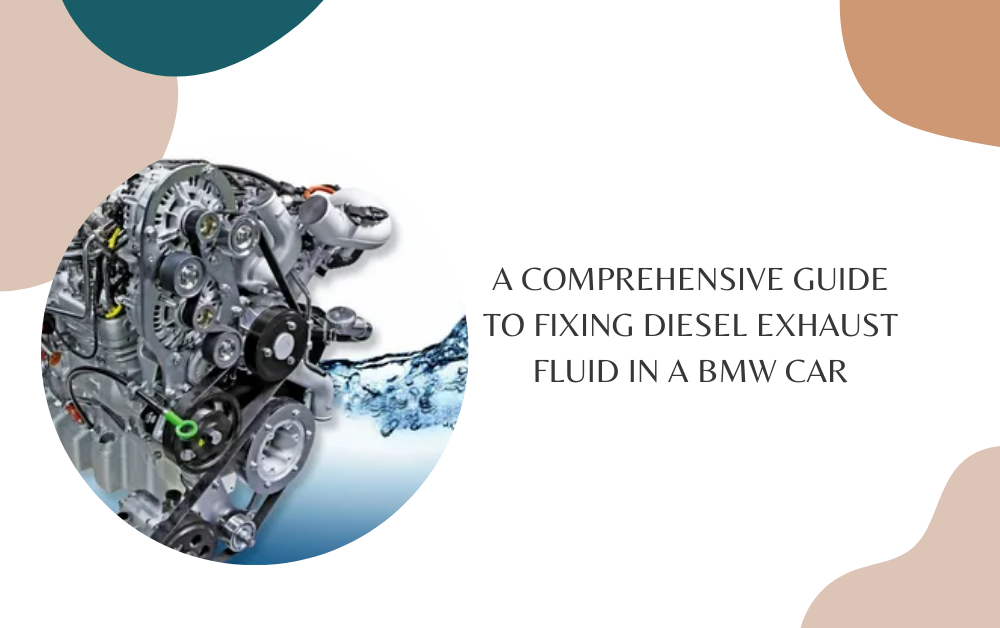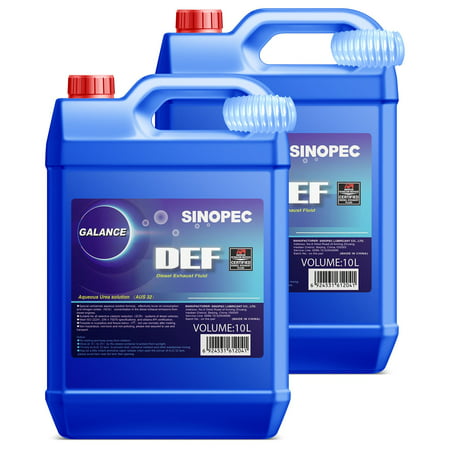
Introduction to Diesel Exhaust Fluid in BMW Cars
Diesel exhaust fluid (DEF) is a crucial component for modern diesel engines, including those in BMW cars, as it helps reduce the amount of nitrogen oxide (NOx) emitted into the atmosphere. This fluid, which is a mixture of urea and deionized water, works with the Selective Catalytic Reduction (SCR) system to convert NOx into harmless nitrogen and water vapor. For BMW car owners, maintaining and fixing the DEF system is essential not only for environmental compliance but also for the vehicle’s performance and longevity. This article provides a thorough overview of how to manage and resolve issues related to diesel exhaust fluid in your BMW.
Understanding the Importance of Diesel Exhaust Fluid
The DEF plays a pivotal role in reducing the emissions from your BMW’s diesel engine, making it compliant with global environmental standards. Without proper maintenance of the DEF system, the car’s engine could face reduced performance, or it could go into a limited functioning mode to prevent further damage and emissions. Therefore, it’s crucial for BMW owners to not only keep the DEF system in good working condition but also to understand how to fix issues when they arise. Regular checks and maintenance can prevent most problems associated with DEF.
Recognizing Common DEF Issues in BMW Cars
Common issues with the DEF in BMW cars can range from low fluid levels to malfunctioning injectors or sensors within the SCR system. Symptoms of DEF-related problems include warning lights on the dashboard, reduced engine performance, and a noticeable increase in fuel consumption. In some cases, if the DEF system is not fixed, the car may fail to start or run at reduced power to prevent damage and limit emissions. Being aware of these symptoms can prompt timely interventions that may prevent more serious issues.
Regular Maintenance of the DEF System
To keep the DEF system functioning properly, regular maintenance is essential. This involves routinely checking the fluid level and topping it up when necessary. BMW recommends that DEF be added every 10,000 miles, but this can vary based on your driving habits and conditions. It is important to use only high-quality DEF as per BMW’s specifications to avoid potential sensor or pump damage. Keeping track of maintenance schedules and ensuring timely servicing can help in avoiding the majority of DEF issues.
Step-by-Step Guide to Fixing DEF in Your BMW
If you encounter a problem with the DEF system in your BMW, follow these steps to fix it:

- Check the DEF Fluid Level: First, ensure that the DEF tank is not empty. Low fluid levels can trigger warning lights and reduce vehicle performance.
- Inspect for Leaks: Check for any signs of leaks in the DEF tank and lines. Leaks can cause the system to lose pressure and fluid, impacting its efficiency.
- Look at the DEF Injector: The DEF injector can become clogged or malfunction. Inspecting and cleaning or replacing the injector can resolve some common issues.
- Examine the DEF Pump: The pump is crucial for delivering fluid from the tank to the injector. If the pump fails, the entire system stops working properly.
- Reset the System: After any repairs or maintenance, reset the vehicle’s computer system to ensure all error messages are cleared and the system is recalibrated.
When to Seek Professional Help
While many DEF issues can be resolved through regular maintenance or minor repairs, some problems may require professional intervention. If the DEF warning light remains on after refilling and resetting, or if there are signs of system damage or malfunctioning sensors, it’s advisable to take your BMW to a certified mechanic or dealership. Professionals have the right tools and expertise to diagnose and fix complex DEF system issues accurately.
The Role of Professional Diagnostics
Professional diagnostics can play a key role in effectively fixing the DEF system in your BMW. BMW dealers and certified mechanics use specialized diagnostic tools that can quickly identify the root cause of the problem. These tools can read the fault codes stored in the car’s computer system, guiding the technician to the specific issue within the DEF system. Relying on professional diagnostics ensures that the correct problem is addressed, preventing unnecessary repairs and expenses.
Preventive Measures to Avoid Future DEF Issues
To avoid future DEF issues, consider implementing preventive measures:
- Use only BMW-approved DEF.
- Keep up with regular maintenance schedules.
- Avoid running the DEF tank dry as this can cause air locks and pump overheating.
- Regularly check for and address error codes, even if they seem minor.
- Educate yourself on the DEF system’s functionality to better understand and maintain it.
Conclusion: Ensuring Optimal Performance and Compliance
Maintaining the DEF system in your BMW is essential for ensuring that your vehicle remains efficient, environmentally friendly, and compliant with emission standards. By understanding how to properly maintain and fix the diesel exhaust fluid system, you can help extend the life of your car and avoid costly repairs. Regular maintenance, timely repairs, and professional assistance are key to keeping your BMW running smoothly and efficiently.
Note :- To Read More Articles Visit on- incnewsblogs







